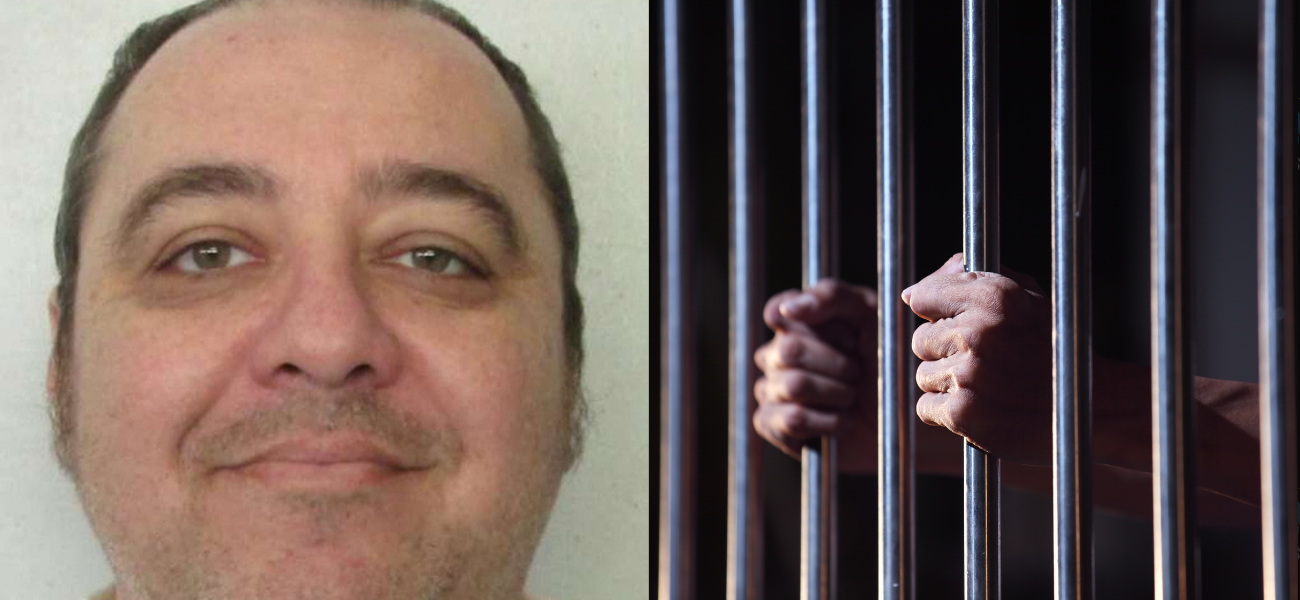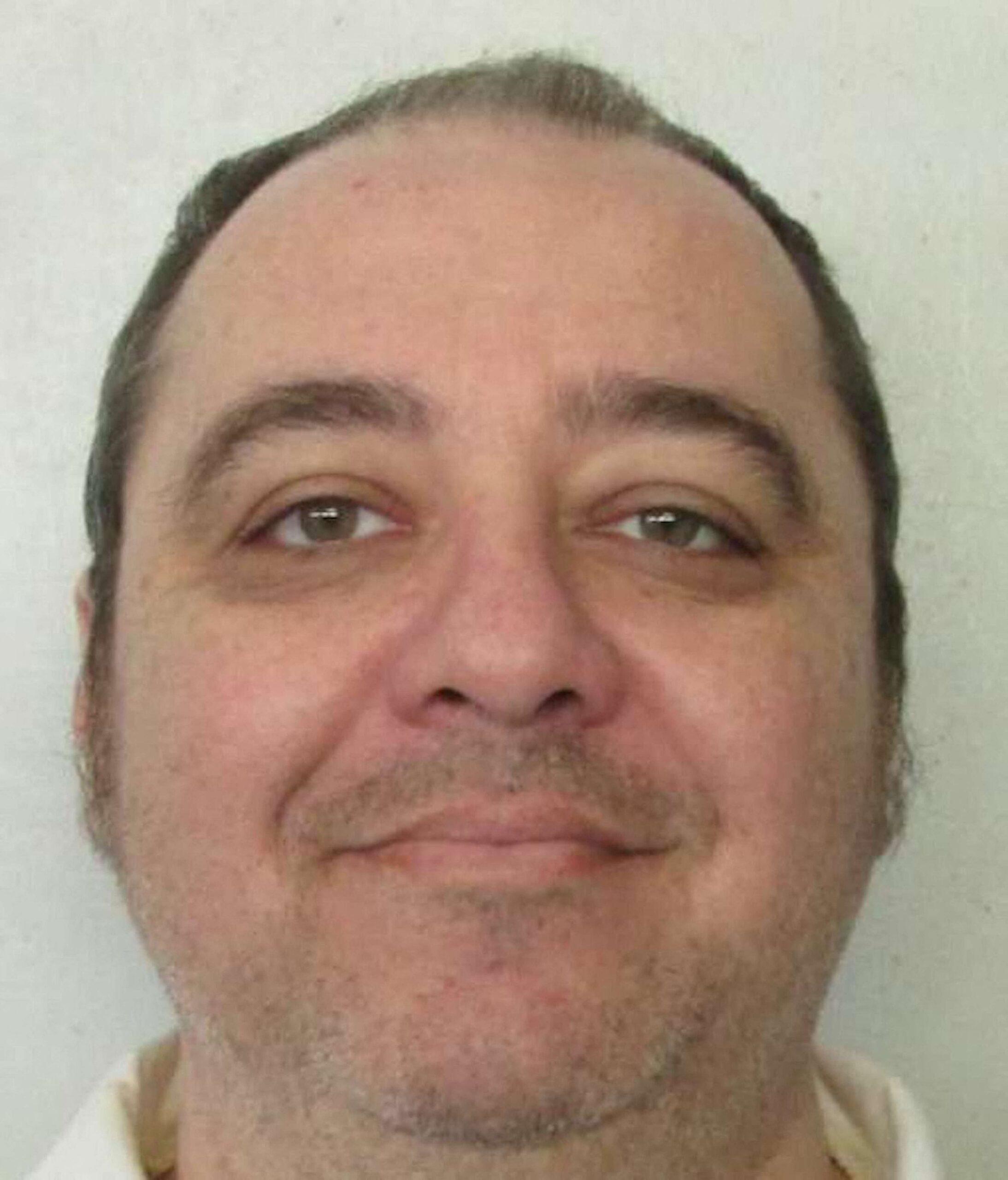
Alabama State Set To Execute Prisoner By Nitrogen Suffocation, First Ever In The U.S.
By Favour Adegoke on January 25, 2024 at 12:15 PM EST
Updated on January 25, 2024 at 8:12 PM EST
Alabama is set to execute Kenneth Eugene Smith using the experimental method of nitrogen hypoxia despite legal and ethical concerns.
Smith, convicted in a 1988 murder-for-hire plot, survived a previous botched lethal injection. His legal team's appeal, which cited the violation of constitutional standards and the potential for cruelty, was rejected.
Critics argue the state's dismissal of risks is indefensible, while medical experts and human rights groups express alarm over the untested procedure.
Alabama Set To Execute Prisoner By Gassing Him To Death

Alabama is set to make history as the state prepares to execute Smith using nitrogen hypoxia.
Smith, who was convicted in a 1989 murder-for-hire plot and has spent three decades on death row, survived a botched lethal injection attempt last year as orderlies at Holman Prison struggled to find a vein for 90 minutes until his execution warrant expired.
Despite concerns about executing Smith through the experimental method that has been deemed too cruel for animals, a federal court rejected Smith's appeal.
Tonight, the 58-year-old will be strapped to a gurney, given a chance for a final statement, fitted with an industrial-style respirator mask, and subjected to nitrogen inhalation for at least 15 minutes, causing death from oxygen deprivation.
Attorney Argues That Prisoner's Execution Is A 'Test Case' And Violates Constitutional Standards
To prevent his scheduled execution, Smith's legal team argued that Alabama aims to use him as a "test case" for the new method of nitrogen hypoxia, which they contend violates the constitutional ban on cruel and unusual punishment. They also raised concerns of prolonged suffering and the potential for choking on vomit.
Prosecutors, however, assert that nitrogen gas will induce unconsciousness within seconds, leading to death within minutes, claiming it as "the most painless and humane method of execution known to man."
However, in a 2-1 decision, judges acknowledged that there is "no doubt that death by nitrogen hypoxia is both new and novel." However, they stated that Smith hadn't demonstrated how it violated constitutional standards.
According to the Daily Mail, dissenting, Judge Jill A. Pryor expressed "real doubts" about the protocol, noting: "He will die. The cost, I fear, will be Mr. Smith's human dignity, and ours."
Despite these concerns, the US 11th Circuit Court and the Supreme Court rejected Smith's argument that it would be unconstitutional and refused to block the execution.
Critics Concerned On The Use Of Nitrogen Hypoxia, Which Is Deemed Too Cruel For Animals

Critics of the untested nitrogen hypoxia execution method argue that the state cannot accurately predict the outcomes for Smith.
Medical professionals and human rights organizations also challenged the state's dismissal of risks and expressed alarm over the experimental nature of the procedure.
Robin M. Maher, executive director of the Death Penalty Information Center, shared his concerns, stating: "It's indefensible for Alabama officials to simply dismiss the very real risks this untested method presents and experiment on a man who has already survived one execution attempt."
The method's potential to violate anti-torture principles has also been cautioned by UN-appointed experts, and the use of nitrogen gas in euthanizing animals was deemed too distressing by the Veterinary Medical Association in 2000.
Dr. Philip Nitschke, a euthanasia expert who designed a Nitrogen gas suicide pod, also expressed concerns about Alabama's proposed use of a mask, highlighting potential issues with facial hair and involuntary movements that could impact the seal.
In an interview with the New York Times, Nitschke noted: "If there are leaks, Smith could continue to draw in enough oxygen to prolong into what could be a very macabre, slow process of slowly not getting enough oxygen."
Nitschke envisions scenarios where the execution could proceed smoothly or go awry, adding: "I feel anxious about Kenny, and I just don't know which way things are going to go."
The 1988 Murder-For-Hire Plot
Smith is one of two individuals found guilty in the 1988 murder-for-hire killing of a preacher's wife. At the time, prosecutors asserted that the murderous duo received $1,000 each to murder Elizabeth Sennett on behalf of her husband, who sought insurance benefits due to financial troubles.
Elizabeth, 45, was later discovered dead in her Colbert County home on March 18, 1988, with multiple stab wounds, while her husband, Charles Sennett Sr., who contracted the killers took his own life when implicated in the investigation.
Smith's initial 1988 conviction was overturned but was retried, and he was again found guilty in 1996. Despite a jury recommending life imprisonment by an 11-1 vote, a judge imposed the death penalty. The other convicted individual, John Forrest Parker, was executed in 2010.
